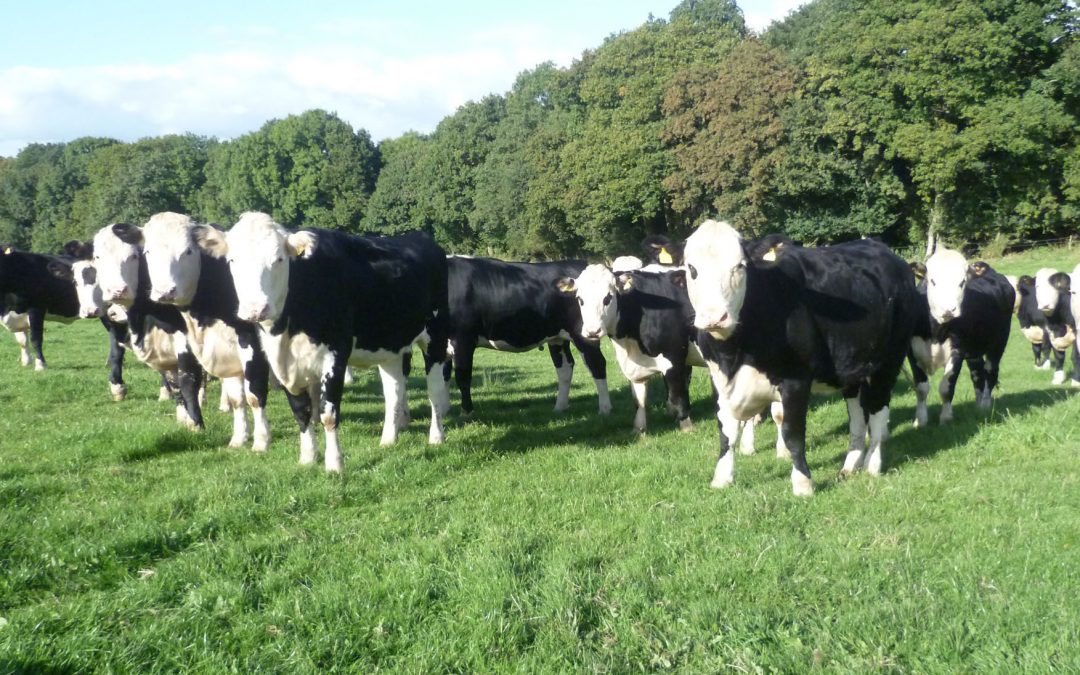I am in the fortunate position of seeing firsthand the many different types of farming businesses in this country, both in terms of system and geography, that produce the raw materials to feed the populace. The tenacity, work ethic and sheer determination to succeed never fails to impress. The mix of enterprise and characters involved makes every farm business unique, each one juggling the different pressures to thrive and survive.
Whilst the media and politicians bang on endlessly about what might be, we as farmers just get on with it: ‘doing’ rather than ‘talking’. We know margins are thin and economies of scale come in to play more and more, however the majority of farmers I come across are pretty optimistic, and rightly so in my view. We have 60 million relatively wealthy consumers on our door step, another 500 million just over in Europe, and people the world over wanting better food as their countries develop. On a recent trip to Brussels with a group of NFU members, we were told by Meat & Livestock Australia (responsible for promoting Australian beef and lamb around the world) that they were high cost producers, saw Europe and the UK as a premium market, and could no way afford to undercut our prices. The 9000 tonnes of beef they send to the UK catering trade annually is tiny compared to their main markets of the US, Japan, South Korea and China. If this is the case, we should worry less about cheap imports, and more about the lack of true competition in our supply chains. As farmers, the number of companies from which to source chemicals, plant breeding and machinery becomes less and less, and the number of true outlets for our produce (i.e. processors) also become fewer and fewer. This is something really to get to grips with.
Grass Seed
A lot of grass seed was planted this autumn, as conditions were ideal for our customers to maximise grassland production. Sward density and the ability to persist under intensive cutting and grazing management are what’s mostly required. Our grass seed business continues to grow apace, and we are in the process of updating our mixtures. We are also pleased to be able to use some excellent “Aber” varieties for 2017. Look out for the new catalogue in the spring.

Maize Seed
The best maize year for some time resulted in big crops harvested in good weather. We have a cracking line up of varieties for the spring, and are particularly pleased to offer the new variety PEREZ from KWS which is a real step up in terms of yield/maturity combination.
Cereal Seed
A huge increase in spring cropping in the more Eastern arable areas due to black grass problems will result in a seed shortage. Book early to secure the variety that works for your farm.
Fertiliser
The recent large increase in Nitrogen price takes some explaining. Oil is one of the drivers, now at around $55 a barrel from a low of $27 in January, whereas wheat has only increased marginally, and nothing like the 30% hike in Nitrogen we have seen in the last couple of months! I am told by the trade that the main driver is that prices were below cost of production for too long, and there is still a large part of the global trade to be done. Whether we believe this or not, current guide prices are as follows:
| CF Nitram | £235 |
| Lithan / Pulan | £233 |
| Granular Urea | £250 |
| 0.20.30 | £247 |
| Quality Spanish ASN (26N + 37So3) | £215 |
| Urea / Sulphur 33 + 30So3 | £227 |
Based on full loads and 28 day payment.
Hay & Straw
Despite a decent straw baling season, straw will go short. A combination of lower yield, three straw fired power stations in the East, and an already busy export trade means prices are firming. We are already looking for A1 quality barn stored straw in big square bales. Hay and haylage is very different with many more sellers than buyers at present, and great value deals available.
Again, there is some export trade for the best samples.

We wish all of our friends & customers a merry Christmas & a prosperous 2017
Julian Godwin and all at Foxley



